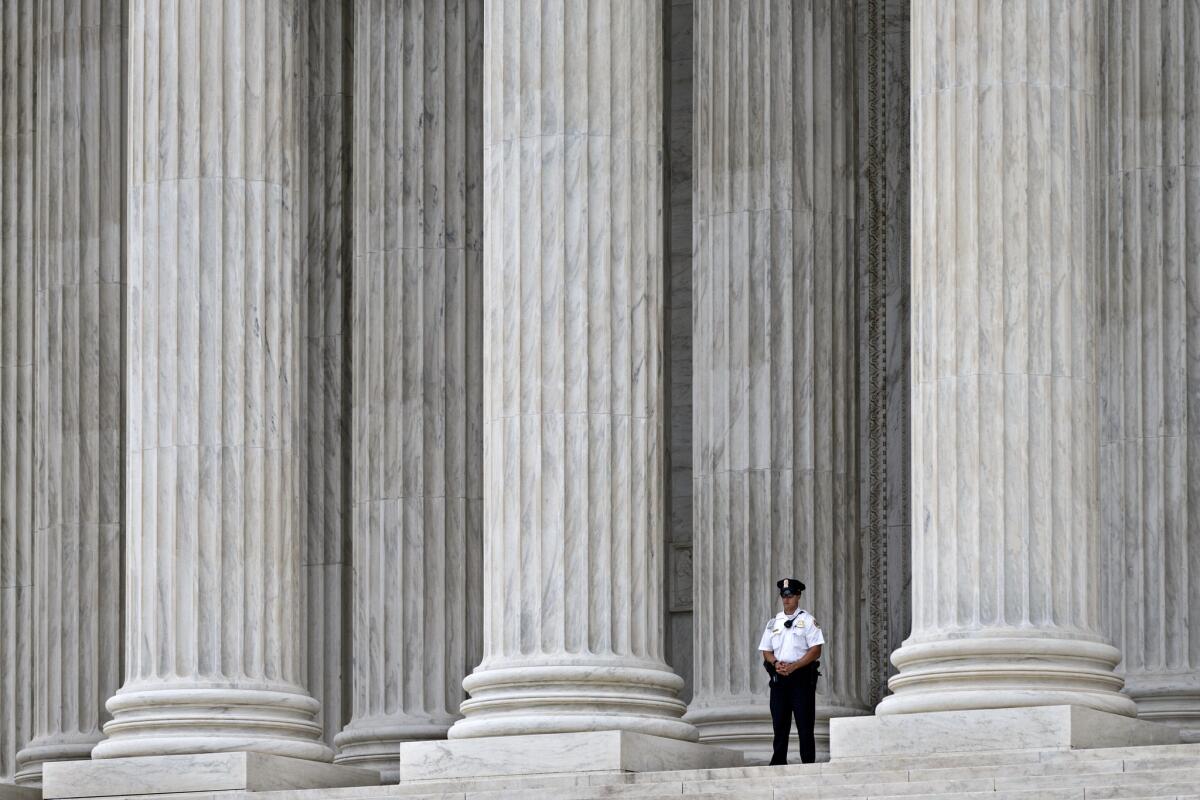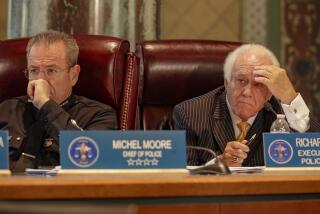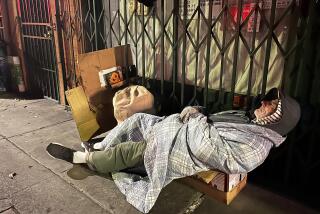Supreme Court to decide L.A. hotel-motel privacy case

The Supreme Court said Monday it will hear a potentially far-reaching privacy dispute involving a Los Angeles city ordinance that allows police to enter a hotel and demand to see the guest registry without a court order.
The Los Angeles Police Department says it uses surprise checks of those guest registries to crack down on prostitution, gambling and drug dealing. At least 70 cities across the nation have similar laws.
But a group of motel owners went to court in Los Angeles and won a broad ruling from the U.S. 9th Circuit Court of Appeals last year holding that these inspections of private business records violated the 4th Amendment ban on “unreasonable searches and seizures.”
The case raises similar questions about the constitutional status of private business records that have arisen in the National Security Agency’s mass-collection of private telephone records in counter-terrorism investigations. Government lawyers say the phone-number logs are not entirely private because they are held by phone companies, while civil libertarians want the government to seek court permission before accessing the dialing records.
In the L.A. hotel case, the 9th Circuit ruled that guest registries involve the privacy of the motel operator, not the guests.
“The business records covered by [the city’s ordinance] are the hotel’s private property,” wrote Judge Paul J. Watford for a 7-4 majority. Allowing officers to search them on demand “is an invasion of the hotel’s protected privacy interest in those papers.... To be sure, the guests lack any privacy interest of their own in the hotel’s records. But that is because the records belong to the hotel, not the guest, and the records contain information that the guests voluntarily disclosed to the hotel.”
Watford, an Obama appointee who has been mentioned as a potential nominee for the Supreme Court, cited two recent high court opinions by Justice Antonin Scalia that limited police searches of private property. One involved police secretly attaching a GPS tracking device to the underside of a car. The other arose when a police officer took a drug-sniffing dog to the front porch of a private home.
The Los Angeles ordinance says the guest registry “shall be kept on the hotel premises in the guest reception or guest check-in area … and shall be made available to any officer of the Los Angeles Police Department for inspection.”
In his appeal to the high court in Los Angeles vs. Patel, City Atty. Mike Feuer said officers use the law to target “parking-meter motels” that serve as a “crime magnet” in some neighborhoods.
He argued that the 9th Circuit ruling was wrong for two reasons, one procedural and one substantive. He said the 4th Amendment can be enforced only in individual cases where someone claims a search was unreasonable. It was mistake, he said, for the 9th Circuit to rule the city’s motel ordinance violated the 4th Amendment “on its face.”
Secondly, he said the appeals court was wrong to say a motel guest registry is a “private document.” No one, including the motel owner, can claim a “reasonable expectation of privacy in the information contained in the guest register,” he said.
Similar ordinances are enforced in Atlanta, Denver, Las Vegas, Minneapolis, St. Louis, San Diego, San Francisco and Seattle, the city attorney told the court.
Frank Weiser, an attorney for motel operators, said they did not object to keeping guest records, but they resented the surprise searches late at night. He said many of the motels were operated as family businesses.
“This case could reach far beyond the motel industry,” he said. “It will have an effect on business people around the country.”
The court said it will probably hear arguments in the case in early March and hand down a decision by late June.
Separately Monday, justices said they would review another 9th Circuit decision that overturned the verdict in a 1985 triple murder case from San Diego.
Hector Ayala was sentenced to die for killing three men in a drug robbery. At issue now is whether blacks and Latinos were wrongly removed from the jury. The 9th Circuit, in a 2-1 ruling, said the trial judge made a mistake when he met alone with prosecutors to hear their reasons for dropping seven potential jurors.
California Atty. Gen. Kamala Harris in her appeal argued that the 9th Circuit violated federal law by second-guessing a state Supreme Court ruling 14 years ago that upheld Ayala’s conviction and death sentence.
Twitter: @DavidGSavage
More to Read
Inside the business of entertainment
The Wide Shot brings you news, analysis and insights on everything from streaming wars to production — and what it all means for the future.
You may occasionally receive promotional content from the Los Angeles Times.











